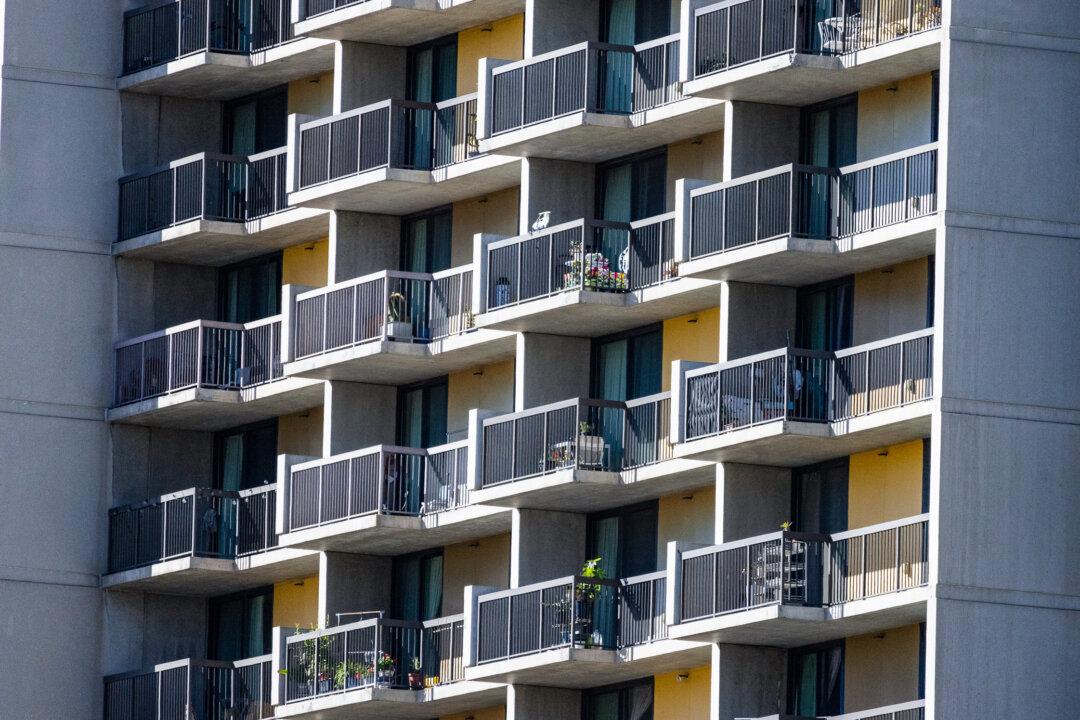The Biden administration has come under pressure from progressive Democrats to finalize a policy outlining the obligation of communities to “affirmatively further fair housing (AFFH),” an unfulfilled aspect of a Civil Rights-era law.
Democrats Call on Biden to Quickly Bring Back ‘Fair Housing’ Rule Rescinded by Trump
A group of 28 House Democrats called for the immediate implementation of the rule proposed by the Housing Department a year ago.

An apartment unit resides next to towering buildings in Los Angeles on Jan. 11, 2024. John Fredricks/The Epoch Times




